
views
X
Expert Source
Kelli Miller, LCSW, MSWPsychotherapist
Expert Interview. 11 June 2020.
In this article, we'll explain how to prepare for this conversation, apologize to your guy, and handle the outcome. For our complete guide on how to tell your boyfriend you cheated while drunk, read on.
Preparing for the Conversation
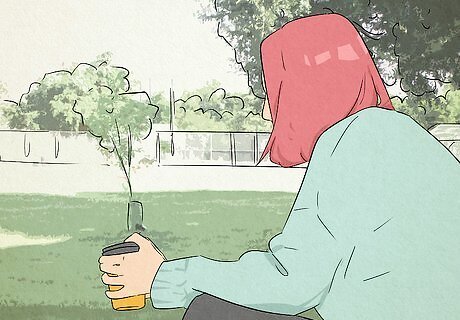
Think through your reasons for cheating. Cheating is a chance to think harder about your relationship. Although alcohol can lower your inhibitions, and it’s possible that you would never have cheated had you not been drunk, ask yourself why you wanted to cheat in the first place. The answer to this question can tell you if your relationship may have had underlying problems that were never addressed. Try journaling responses to questions like: Do you feel insecure or unattractive? Is there something missing in your relationship? Have you wanted to cheat for a while? Are you happy with your sex life? Do you truly want to stay in this relationship? Why?

Decide if you want to tell him. Although honesty is important in any relationship, you may have good reasons to keep cheating secret. Telling your boyfriend you cheated is likely to hurt him, and it may only be a good idea to confess if this will allow you to recommit to your partner and you’re prepared to have the relationship end. Be honest with yourself about whether you’re capable of holding onto this secret. If your cheating involved unprotected sex, telling your boyfriend what happened is important for his health. If you worry that your boyfriend may become violent or put you in danger if you tell him you cheated, don’t tell him you cheated. Find a way to leave the relationship, and remember that your safety matters. Remember—cheating doesn't always have to signify the end of a relationship. It can also represent a really beautiful beginning!
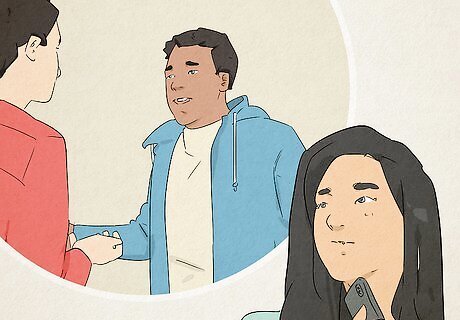
Prepare for his reaction. Think about how your boyfriend is likely to react to this news, and what you could say in response. You may even want to ask a friend to rehearse this conversation with you. Having a script for your responses can keep you from saying something you regret. For example: If he says, “How could you do this to me?” respond, “I’ve asked myself the same question, and I don’t have a good answer. I know you’re hurt, and I’m really sorry. Take as much time as you need to process this.” If he says, “Would you have done this if you hadn’t been drunk?” respond, “I don’t think I would have. I genuinely believe in our relationship, and I wouldn’t have cheated if I was thinking straight.” If he says, “How can I ever trust you?” respond, “I don’t expect you to trust me. I know that if we can rebuild trust, it will take a lot of work on my end to show you that I’m committed to you.” If you suspect your boyfriend might get too angry or violent, prepare an escape option. This might mean asking a friend to be ready to pick you up if the conversation goes poorly.
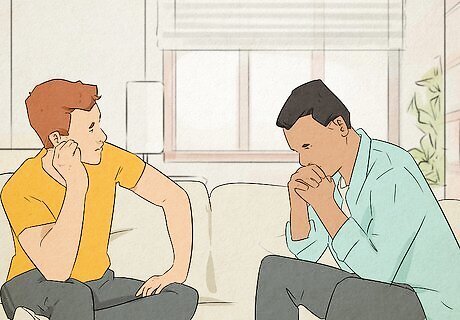
Pick a comfortable setting for the conversation. Choose a time to talk to your boyfriend when neither of you is preoccupied with other stressful issues and when you don’t have anything to do afterward. A private setting can allow you to both fully express yourselves. Try sitting on a couch and facing your partner. Then, open the conversation by saying something like: “I want you to know that I care about and love you. I have something really difficult to talk to you about.” “I’ve been thinking about something a lot, and decided that talking to you about it is important for our relationship.” “It’s really tough for me to talk about, but I made a terrible mistake, and want to be honest with you about it.
Apologizing to Your Boyfriend
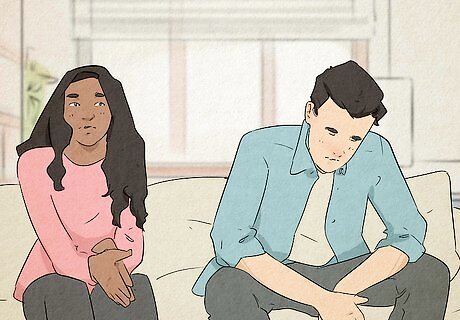
Offer a straightforward apology. Even though alcohol was involved, and even if there were underlying issues in your relationship, it’s important to try not to justify what happened or be defensive while apologizing. Be honest, direct, and to-the-point, by saying something like: “Last week, I got too drunk at a bar, and slept with someone else. I know I’ve really hurt you, and I am so sorry.” “When I was drinking last night, I kissed someone else. I can’t tell you how sorry I am that this happened.” “When I got drunk, I sent another guy flirty messages. I know this was a betrayal, and I need to apologize to you.”

Show empathy to make your apology more meaningful. Expressing remorse is a key component of a good apology, and shows your boyfriend that you understand how your actions have affected him. Say something like: “I know you must feel hurt and betrayed. If our positions were switched, I’d feel the same way.” “I feel so ashamed that I did this to you. I know I really hurt you.” “I know that you care about me, and I care about you too. That’s how I know that this must be so painful for you to hear.”
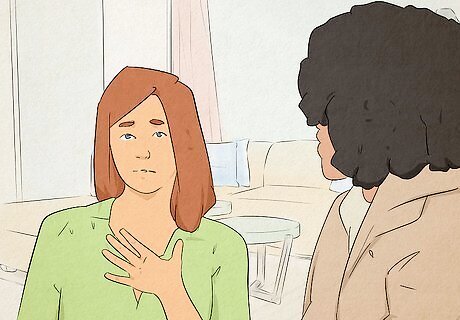
Show your willingness to repair the relationship. Being enthusiastic about fixing things shows your commitment. Offer your boyfriend meaningful ways to see that you’re taking responsibility for your mistake. By showing him that you are going to do everything in your power to make things right, you demonstrate your accountability. Say something like: “I know I need to make serious changes to rebuild our trust. In the future, I won’t drink without you being present.” “I realize that we might need new ground rules to work things out. If you ever prefer that I not go out, I’m happy to stay in with you.” “I’ve already blocked the other guy’s number on my phone, and to rebuild our trust, it’s important to me that you feel comfortable checking my messages whenever you want to.”
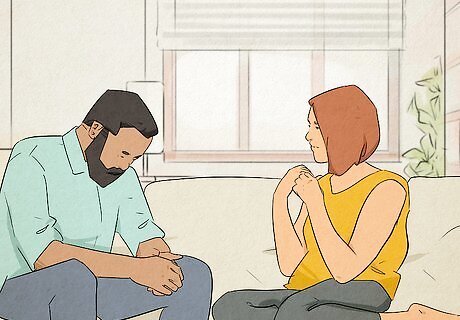
Offer to tell him the details of what happened. Revealing everything at once can help rebuild trust. After cheating, many people try to “trickle-truth” what happened, by hiding some of the information that they think would hurt their partner. As more details get revealed over time, their partner ends up feeling like they never have the whole story of what happened. Ask your boyfriend if he wants to hear all the details from you first-hand, by saying something like: “I know this conversation is painful, but I want to rebuild trust with you by being honest. Would you like to know everything that happened?” “If you’re comfortable with it, I’d like to be totally honest with you about what happened last night. Can I show you the messages that I sent?” “I don’t want you to have any doubts about what happened last week. I want to tell you all of the details, and if you have any questions, please ask them.”
Dealing with the Aftermath

Visit a couple’s counselor to heal your relationship. Couple’s therapy helps many couples move on from infidelity. After a cheating incident, a professional can help you rebuild your relationship, and possibly make it stronger than ever. If there were underlying issues that led to the cheating, a therapist can help you identify them. Ask your boyfriend if he’d be willing to go to therapy with you by saying something like: “I know that this is a crisis for our relationship. If you’d be willing to go, I’d really appreciate the chance to schedule a session with a couple’s therapist.” “This relationship is really important to me, and I’d do whatever I can to make it work. Can we talk to a professional to sort out our feelings?” “I know that you’re busy with other things, but if you’re willing to rebuild our relationship, I think couple’s therapy could really help. I know a lot of other people have benefited from it.” Couple's counseling provides both you and your BF with a safe place to explore everything that is going on.
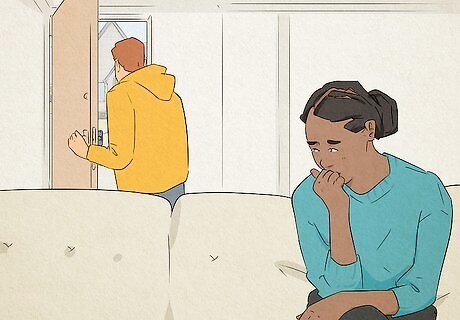
Accept that you may have to move on. Remember that your life has more to it than this relationship. It’s possible that after this conversation, your boyfriend won’t be able to forgive you. If that happens, it’s best to move on. It will be hard at first, but know that you have value and that this experience can be an excellent learning opportunity for the future. If your relationship ends, try spending time with your friends and family. They’re there to support you, so remember that you have other meaningful relationships in your life.
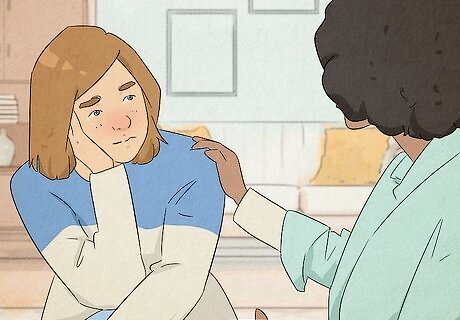
Talk to an individual therapist to process your emotions. You don’t have to experience these feelings of guilt, sadness, or confusion alone. A therapist can offer you a safe space to approach this episode of cheating with maturity, no matter what happens to your relationship. This episode of cheating could be a sign that alcohol has started to damage your personal life, and talking to a therapist can also help you manage your relationship with drinking.



















Comments
0 comment